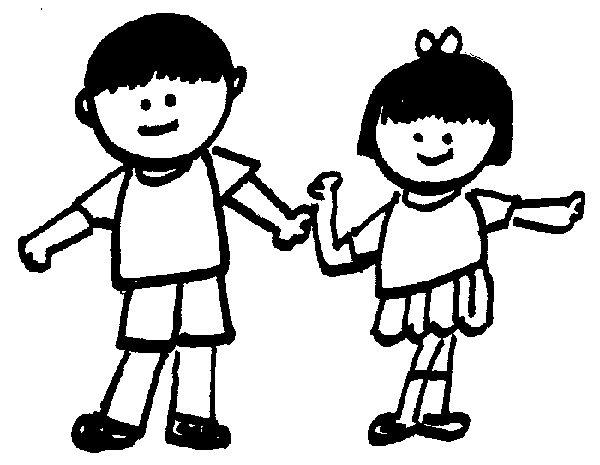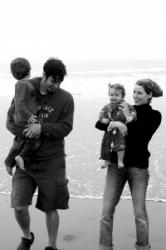 I’ve been ruminating on writing a blog lately about my kids. The thing is, it’s kind of a hard blog to write. I’d love to attempt to capture some of the story of what’s going on inside of them as it pertains to the changes in our family over the last eleven months of sickness. I’m just not sure I’m capable of accurately capturing it! I feel like as parents we’re constantly guessing and groping for what’s going on inside my kids brains and hearts.
I’ve been ruminating on writing a blog lately about my kids. The thing is, it’s kind of a hard blog to write. I’d love to attempt to capture some of the story of what’s going on inside of them as it pertains to the changes in our family over the last eleven months of sickness. I’m just not sure I’m capable of accurately capturing it! I feel like as parents we’re constantly guessing and groping for what’s going on inside my kids brains and hearts.
We’ve been intentional in how we communicate with the kids, choosing to be honest with them in sharing the truth about my health but doing so in calculated and careful ways also knowing that we can’t just dump on them excess information. We’ve also been intentional in showing that doctors visits are not to be feared–that they don’t have to worry when daddy goes to see a doctor. So reporting about visits with doctors where good things happen, letting them come in and watch radiation treatments, and telling them all about what MRI’s are like has been a valuable way for us to remove some of their tension when I’ve got visits. The tension between giving information and witholding information has been a valuable tension to hold, one that I think we’re doing well in.
But the stress in my kids is most definitely there. It comes out in different ways for each of them. But its there. No question.
India does not talk about it much–though in her make believe play her family is usually dead (that’s got to mean something right?)–she doesn’t really talk about it but it does come out! She’s an extreme girl as it is, but over the last many months her behaviors have swung much more extremely from heights of ecstasy to the depths of the despair. In one sense she’s four years old and it is to be expected, but in another sense she’s…well…scary. Such a ball of emotion! Most nights she gets up and moves to our bed around 3am. And while she’s been a perfect and consistent toilet user (both at night and during the day) since she was three, when my health takes a turn so does her consistency there. She may not be able to control daddies health but she can control when or if she pees! She finds great value if she’s able to come with me to appointments, and in fact has become my blood drawing buddy: when I go get my blood thickness checked she always comes with me (it’s kind of our thing). She’s in play therapy with a friend, and I think that has been helpful too. While India does not talk about it much, she gets it and is fully aware of what is going on. In her words:
Daddy being sick makes me sad. When things change I get more sad. I like to buy daddy flowers because he has cancer, it makes me happy and it makes him happy. I bought them because of daddys tumor.
Jones has been much easier in many ways because he’s a communicator. He’s verbal in how he does much of his processing, as are Jess and I. Earlier on he would ask questions and seek to understand some of what’s happening. Will I lose my hair? Where is the tumor? Are tumors contagious? More lately he’s less interested in talking about it. In many ways as we’ve gotten deeper into all of this he’s grown more and more silent retreating to listening to books on tape and playing with Legos over and above interaction with humans. Between the high anxiety that he already carries in life (he does, in fact, have an anxiety disorder), going to public school for the first time, and daddy being sick he is actually doing really really well. At times his anxiety is expressed in a rigidness or an inability to cope with unexpected changes (often triggered by small insignificant things like a change in routine) while at other times it’s observable through his growing list of irrational fears: going to the bathroom alone, certain ‘creepy’ closets, etc. In Jones’ own words he shared that:
it’s kind of like when you have a family of four both the parents are strong, but then when one gets sick the other one still has to be strong (stronger than the kids). It changes things ’cause I can’t do bigger things like go to museums as much. I worry about whether dad can protect me from strangers because he can’t run. My advice to parents is don’t go out a lot and get lots of rest. You can stay in the building if you want to and help take care of the sick person but you need to rest.
While I make no claim to be an expert, here are a few of the things that I feel like we’ve learned thus far in our journey of parenting through cancer.
- Be willing to get help. Play therapy has been very useful. Jones is in occupational therapy too and it has been incredibly regulating for him.
- Being present is the greatest gift. We are finding that the greatest gift we can give is maybe the hardest: simply being present for your children. There are many times when we’re physically present with our children but our hearts, minds, and emotional availability are far far away. The kids recognize it, they get it, and it’s hard for them. This isn’t always a gift that we’re able to give as we’re dealing with our own sickness or grief–but it is incredibly important and wholly beneficial for the children.
- Be willing to communicate. Kinds are so much more intuitive and smart than we often give them credit for. Leaving them in the dark with regard to test results or the reality of the sickness breeds, I think, distrust and leaves the kids feeling vulnerable as they are able to sense that something is not right. A lack of communication opens the door even more to your children’s grand imagination…and the likely reality is that their imagination is going to create much worse scenarios than the truth. Communication gives them a framework to work through the grief.
- Don’t be afraid to model grief. Grief looks different for every single person, but I think that it’s important not to hide your journey of grief from your kids. If you do, they’re missing out incredibly. They too need to learn how to grieve, they too need to be invited into the grief process, they too need to be reassured that it’s ok to feel angry, sad, tired, etc.
- Treats are good but they don’t fix things. This one has been hard for us. I want to buy them crap to make them feel better (and they want me to buy them crap because we all want more stuff!). There’s a place for treats (even and especially when life is extra hard) but we’re trying to now find some balance and not allow treats to take on a larger role than they should. Special things won’t fix things, buying lots of toys won’t fix things, more ice cream won’t fix things…
- Let go. We are tempted at times to feel guilty because we’re not parenting as good as we think we should, we’re not eating as healthy as we think we should, we’re not _______ (fill in the blank). While we can’t and shouldn’t let go completely, it is important to find some balance and take reassurance in the fact that some things will fall along the wayside. Find some space in your life to let go of your previous expectations because things. have. changed. dramatically. !.
- Expect some acting out. If your child isn’t acting out in some way during all of this you should be incredibly worried. Acting out when life seems to be falling apart is not only appropriate but in many ways probably healthy. They should be feeling more needy, they should be struggling with how to work through new (and stronger) emotions, they should have moments of insanity as they work through their own grief. Provide some healthy (and reassuring) boundaries but don’t squash them for their (very appropriate) emotions!
I could add an additional five, six, or fifteen bullet points here. I don’t write them as an expert, my point isn’t to speak authoritatively into your context. No, I’m sharing with you (as I’ve tried to do from day one) my own journey and process. This blog is all about what I’m learning, what we’re trying to do, how we’re trying to cope with a stage four glioblastoma spinal tumor. I wish this were all easier. I wish my kids were easier. I wish that Netflix had a better selection to keep my kids busy so I could take a nap. But life ain’t always fair.


 It is interesting how innocently or easily prejudice can have a hold on you and the way you see the world. I’ve only just this morning realized that due to Lady and the Tramp I’ve had a dislike of siamese cats for most of my life.
It is interesting how innocently or easily prejudice can have a hold on you and the way you see the world. I’ve only just this morning realized that due to Lady and the Tramp I’ve had a dislike of siamese cats for most of my life. Network
Network Church: a church* is a local gathering of Jesus people who are not only committed to each other and a certain way of life, but also to a structured identity that organizes them into a public/social entity. A church exists when you have a community of individuals who choose to die together for the sake of others, when new people are entering into this way of life, and when they’ve then determined to own a shared story publicly, privately and as they move forward into the future. (a whole blog should be written about church)
Church: a church* is a local gathering of Jesus people who are not only committed to each other and a certain way of life, but also to a structured identity that organizes them into a public/social entity. A church exists when you have a community of individuals who choose to die together for the sake of others, when new people are entering into this way of life, and when they’ve then determined to own a shared story publicly, privately and as they move forward into the future. (a whole blog should be written about church) Movement: a movement, as I am defining it, has a central mission–a direction that a collection of people rally around. It is different from a network because unlike a network a movement is about ‘us’, about a direction that we are moving together. A movement can (and should) support satellite groups, but it does so insomuch as they are inline with the movements direction and mission. A movement is not quite a church because it is not about the formation of a localized gathered people as much as it is about a way of life that pursues a certain direction. The distinction is subtle but I think that when lived out practically it makes a huge difference. My guess (my assumption and my hunch) is that a movement should and will lead to the formation of a gathered church where people are not only committed to a way of life but to a gathered way of life.
Movement: a movement, as I am defining it, has a central mission–a direction that a collection of people rally around. It is different from a network because unlike a network a movement is about ‘us’, about a direction that we are moving together. A movement can (and should) support satellite groups, but it does so insomuch as they are inline with the movements direction and mission. A movement is not quite a church because it is not about the formation of a localized gathered people as much as it is about a way of life that pursues a certain direction. The distinction is subtle but I think that when lived out practically it makes a huge difference. My guess (my assumption and my hunch) is that a movement should and will lead to the formation of a gathered church where people are not only committed to a way of life but to a gathered way of life.
 While I was showering today I started thinking about the things that I really miss from when I was first sick nearly a year ago.
While I was showering today I started thinking about the things that I really miss from when I was first sick nearly a year ago.